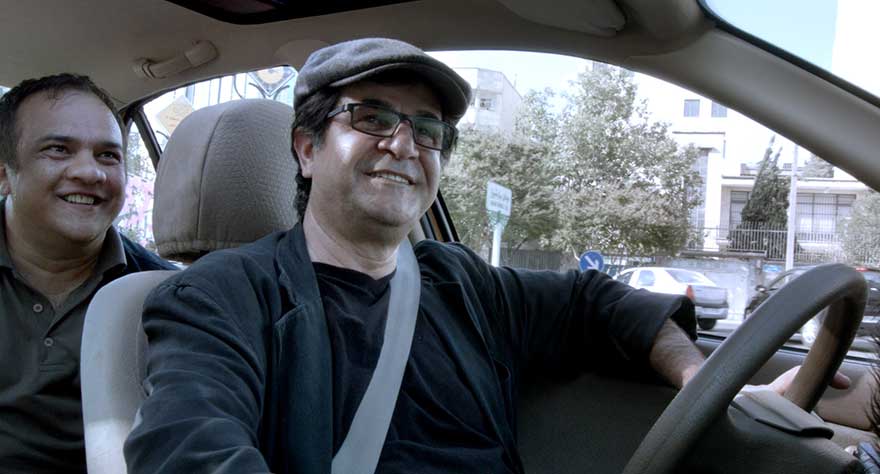
Jafar Panahi's latest act of defiance is a surprisingly playful experience.

Jafar Panahi's latest act of defiance is a surprisingly playful experience.
When it comes to Jafar Panahi, every new film of his is an event, and with every review of one of his latest works comes an explanation for why his new film(s) are so necessary. In 2010, Panahi was imprisoned and charged with several ridiculous crimes for publicly supporting Iran’s Green Movement. He was sentenced to six years in prison and received a 20-year ban on filmmaking, and since then Panahi has made three films: This is Not a Film, Closed Curtain and now Jafar Panahi’s Taxi. The first two films dealt with seclusion and fear; This is Not a Film took place largely in Panahi’s apartment (he was on house arrest), and Closed Curtain took place at a vacation home where he had to cover up the windows so no one could see him filming. But now, with Jafar Panahi’s Taxi, he’s doing his boldest move yet by going out into the streets of Tehran. It’s a surprisingly playful turn for Panahi, although it never distracts or dampens from the reality of his situation.
The set-up is simple, probably out of necessity. Panahi plays a taxi driver going around Tehran encountering a variety of people, all of whom address some sort of political and/or moral issue through whatever conversation or experience they have in the cab. Panahi uses stationary cameras in the taxi to capture all the action, mainly relying on a dashboard camera which he frequently pivots to whatever needs to be seen. The opening scene has him picking up a man and woman separately, with the man confusing the camera for a security system. He says thieves should be hanged in Iran, and that triggers off a debate with the woman over the death penalty and punishment. It’s a captivating discussion with a funny punchline; the man turns out to be a thief himself, but specifies that he only steals from people who deserve it, like people who steal from the poor.
But before there’s time to unpack the debate, Panahi starts piling on self-reflexive elements (fans of Panahi should come to expect this). His next passenger, a man who sells bootlegged films around town, immediately recognizes Panahi for who he is, and then claims the man and woman in the opening were actors (his evidence being that one of them repeated a line used in an earlier film by Panahi). There’s no distinction between reality and fiction in the film because Panahi doesn’t provide any explanations. It could be possible that some of his passengers are real, while others might be fake. It doesn’t really matter since every exchange feels natural, even when it goes broad (like when two old, superstitious women treat a trip to a fountain as a life or death situation).
One of Panahi’s greatest skills as a filmmaker is how he can weave such dense and thematically strong material into a film that can feel light on its feet. The questions of crime and punishment brought up at the beginning echoes throughout, like when a man didn’t report people who stole from him because he knew they were poor and acting out of desperation. It’s easy to interpret these conversations as pointed criticisms of Iran’s different institutions, but sometimes it’s easier to take them as just highly entertaining and funny scenes. Case in point: Panahi’s niece after he picks her up from school, who explains her school assignment where she has to make a film that follows Iran’s censorship rules. Her sassy, no bullshit attitude when it comes to talking with her uncle makes her immediately likable, and one of the film’s true highlights. Panahi must have realized the best way to go after his country’s censorship laws was to let a young child take them down for him.
And even though Jafar Panahi’s Taxi has plenty to enjoy and laugh at, it’s in the later sections of the film that Panahi reminds viewers of the risks he’s taking. He may be able to freely drive around the city, but the unsettling final scene puts the emphasis back on how dangerous Panahi’s harmless act of moviemaking is within his country (there are also no credits for the cast or crew aside from Panahi in order to keep them safe). Yet Jafar Panahi’s Taxi is an optimistic film in some ways. Much like the two films before it, it’s a sign of how even the biggest restrictions can’t pin down creativity. And if this is how creative Panahi can get when held prisoner, we can only imagine what he’ll be capable of once he gets his freedom. Hopefully that freedom will come sooner rather than later.